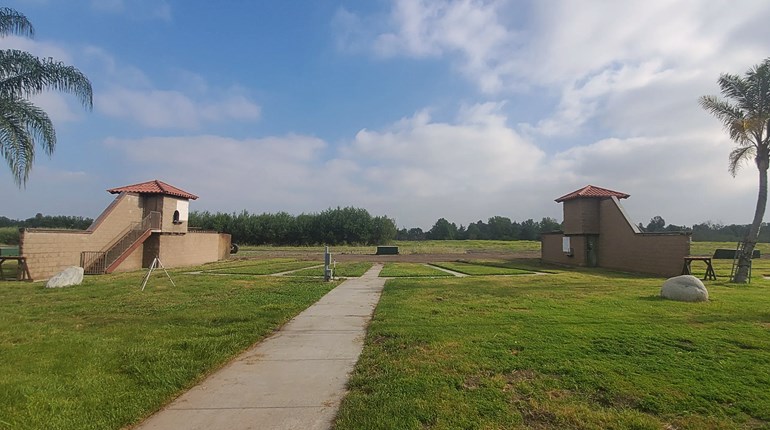
Sometimes a judge says things so plainly, so authoritatively and with so much old-fashioned American commonsense that anyone paying attention is left speechless.
Some are left speechless out of deep appreciation. In the latest such example, these people are the citizens of United States who understand the nature of their freedom.
Others are left speechless because all their legal semantics have been sliced away from infringing upon American freedom by the mere thrust of a sharp pen.
Last week’s ruling in an NRA-supported challenge to California’s ban on the possession of magazines that hold more than 10 rounds of ammunition is such a case. Judge Roger T. Benitez of the U.S. District Court for the Southern District of California ruled that the ban and confiscation of these commonly owned devices is unconstitutional.
“California Penal Code Section 32310, as amended by Proposition 63, burdens the core of the Second Amendment by criminalizing the acquisition and possession of these magazines that are commonly held by law-abiding citizens for defense of self, home, and state,” wrote Judge Benitez. “The regulation is neither presumptively legal nor longstanding. The statute hits at the center of the Second Amendment and its burden is severe. When the simple test of Heller is applied, a test that persons of common intelligence can understand, the statute fails and is an unconstitutional abridgment. It criminalizes the otherwise lawful acquisition and possession of common magazines holding more than 10 rounds—magazines that law-abiding responsible citizens would choose for self-defense at home.”
Judge Benitez based his ruling on the fundamental nature of a right once won by men and women with muskets in their hands—the Second Amendment of the U.S. Bill of Rights.
“This decision is a freedom calculus decided long ago by Colonists who cherished individual freedom more than the subservient security of a British ruler,” wrote Judge Benitez. “The freedom they fought for was not free of cost then, and it is not free now.”
The NRA and California Rifle and Pistol Association supported the plaintiffs in this case. “Judge Benitez took the Second Amendment seriously and came to the conclusion required by the Constitution,” said Chris W. Cox, executive director of the NRA’s Institute for Legislative Action.
Judge Benitez had previously issued a preliminary injunction against the ban and confiscation law (CA Penal Code 32310 (a)) in 2017. That opinion reads like something the late great Justice Antonin Scalia might have penned.
Referring to the magazine ban in California Proposition 63, he wrote:
“There are also exceptions for employees of armored vehicle businesses and for movie and television actors when magazines are used as a prop. While there are other exceptions for licensed firearm dealers, manufacturers, and gunsmiths, there are no exceptions made for members of the Armed Forces, or those honorably discharged or retired. Likewise, there are no exceptions for civilian firearms instructors, concealed weapon permit holders, or families who live far from timely help by local law enforcement agencies and who must be self-reliant for their own defense, defense of their families, or of home and property. Finally, there are no exceptions made for citizens who, should the need ever arise, may be called upon to form a militia for the protection of the state from either foreign or domestic enemies.”
Born in Havana, Cuba, Judge Benitez certainly is aware of what can happen when a government expunges freedom. He also wrote:
“California’s gun laws are complicated…. Proposition 63 adds one more layer of complexity. Perhaps too much complexity…. In California, the State has enacted, over the span of two decades, an incrementally more burdensome web of restrictions on the rights of law-abiding responsible gun owners to buy, borrow, acquire, modify, use, or possess ammunition magazines able to hold more than 10 rounds. The language used, the internally-referenced provisions, the interplay among them, and the plethora of other gun regulations, have made the State’s magazine laws difficult to understand for all but the most learned experts.
“Too much complexity fails to give fair notice and violates due process. ‘[A] penal statute creating a new offense must be sufficiently explicit to inform those who are subject to it what conduct on their part will render them liable to its penalties….’”
That’s clear. That’s concise. That’s a legal mind that both understands the nature of American freedom and the law.
Judge Benitez even noted that at “the preliminary injunction hearing, the attorney for the Attorney General, although well prepared, was not able to describe all of the various exceptions to the dispossession and criminalization components of §32310. Who could blame her? The California matrix of gun control laws is among the harshest in the nation and filled with criminal law traps for people of common intelligence who desire to obey the law.”
This is a judge who gets that this magazine ban is focused on punishing law-abiding citizens in an effort to control them—it’s not a real attempt to curb criminal behavior.
Ammunition magazines that hold more than 10 rounds are very popular because they are useful for sport and self-defense. Some estimates indicate there are more than 100 million such devices now in the hands of America citizens.
Judge Benitez also noted that in District of Columbiav.Heller (2008), “the Supreme Court made absolutely clear that ‘the enshrinement of constitutional rights necessarily takes certain policy choices off the table.’” The judge then found that the“State of California’s desire to criminalize simple possession of a firearm magazine able to hold more than 10 rounds is precisely the type of policy choice that the Constitution takes off the table.”
Though this ruling is pure commonsense and is in-step with American freedom, it is hardly the last word on the topic. The Attorney General for California, Xavier Becerra (D), has already asked a federal judge to delay implementing the ruling while he appeals it. On Thursday, Judge Benitez issued a limited stay that prohibits enforcement of the ban against those who acquire the magazines before 5 p.m. Pacific time on April 5.
This is another battle for American freedom that could, at some point, find its way to the U.S. Supreme Court. This again emphasizes why elections matter—since the makeup of these courts is decided by politicians.
Most-Revealing Anti-Freedom Quote of the Week
“With state-level preemption in mind, we’re confident that we’ve charted a unique course with our shifted focus to ‘use’ that hasn’t yet been fully tested in Pennsylvania courts. An example of this change to ‘use’ can be seen in Bill 2018-1218, which notes that ‘use’ of an Assault Weapon does not include possession, ownership, transportation or transfer.” –Matt Singer, legislative director for Pittsburgh City Councilman Corey O’Connor, told The Hillafter the council passed new gun-control legislation to place restrictions on the useof modern sporting rifles. This a semantic attempt to get around Pennsylvania state law that forbids municipalities from regulating guns.
Most-Revealing Pro-Freedom Quote of the Week
“Plaintiffs understand the State’s concerns, but should the judgment be stayed immediately, even if only temporarily, countless otherwise law-abiding Californians who have already ordered LCMs [large capacity magazines] in reliance on the Court’s order but have not received them would unjustly be subjected to severe criminal penalties without notice. Therefore, unless the Court can unequivocally protect those individuals in an order granting the State’s temporary stay request, that request should be denied.” Anna M. Barvir, attorney for the plaintiffs in Duncan v. Becerra (the NRA-supported challenge to California’s magazine ban).
































